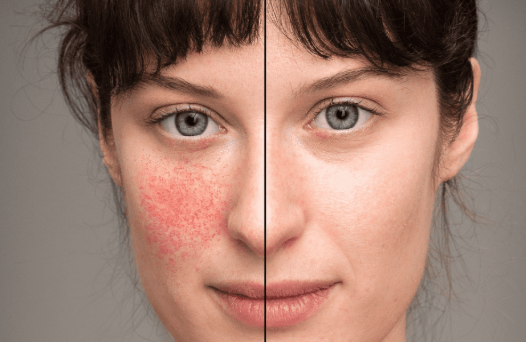Lupus is a chronic autoimmune disease that causes your entire body inflammation. Therefore an autoimmune disease means an infection and the destruction of your own cells is caused by the body’s own immune system. Because lupus inflammation can affect different organs and tissues, including your body:
Similarly lupus symptoms differ depending on the affected portion of the body. Because symptoms can suddenly go away. Therefore they may be permanent or sometimes flare up. So although not two lupus cases are the same, the most frequent signs and symptoms include:
- fever
- shortness of breath
- chronic dry eyes
- chest pain
- fatigue
- body aches
- headaches
- confusion
- memory loss
- joint pain
- rashes
- skin lesions
However although doctors do not know exactly which causes lupus, they believe that many underlying factors may be combined. Including:
Because of doctors found possible triggers such as smoking, stress and toxin exposure, such as silica dust, as potential causes of lupus.
However a family history of lupus can put an individual at a slightly higher risk.
Because of several studies suggest elevated levels of hormones, including higher levels of estrogen, may lead to lupus.
Click
Here to Visit the Store and find Much More….
So doctors continue to study the link and causes of lupus between such infections as cytomegalovirus, Epstein-Barr and hepatitis C.
Therefore long-term usage, for instance, of certain medications, hydralazine (Apresoline), procainamide (Procanbide) and quinidine have been related to a lupus variant known as therapeutic lupus erythematosus.
Understanding Is lupus curable
Therefore no lupus treatment is currently available. Because an approximate 80 to 90 percent of people living with lupus will live normal lives with medication and follow-up, according to the Lupus Foundation of America. Above all research, however, regularly explores promising lupus treatment innovations. So several animal studies indicate that lupus is curable at an early age.
Understanding Lupus Treatment Recommendations
However you may use medicines to regulate lupus symptoms while there is no cure for lupus at this stage. So examples of lupus treatment include:
- nonsteroidal anti-inflammatory drugs (NSAIDs)
- antimalarial medications
- DHEA, a male hormone such as hair loss
- corticosteroids
- immunosuppressive medications
Therefore when recommending lupus treatments, your doctor will consider the lupus symptoms and their severity. Because physicians may also prescribe changes in lifestyle, such as avoiding unnecessary UV exposure. So in addition to their drugs, many people use supplements to reduce symptoms of lupus.For example, flax seeds, fish oil, and vitamin D include these additives. So find a more detailed list of lupus therapy mecications.

Click Here to Visit the Store and find Much More….
For More Information Related to Fibromyalgia Visit below sites:
References:
Fibromyalgia Contact Us Directly
Click here to Contact us Directly on Inbox
Official Fibromyalgia Blogs
Click here to Get the latest Chronic illness Updates
Fibromyalgia Stores








